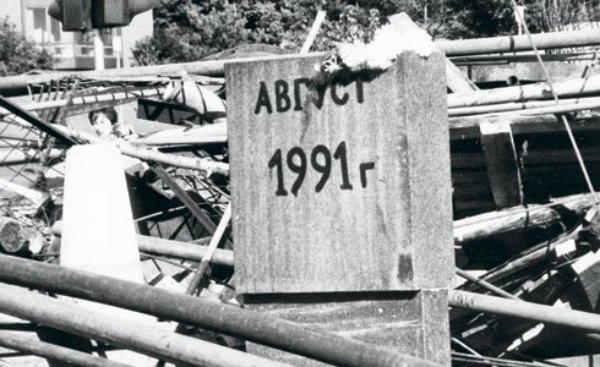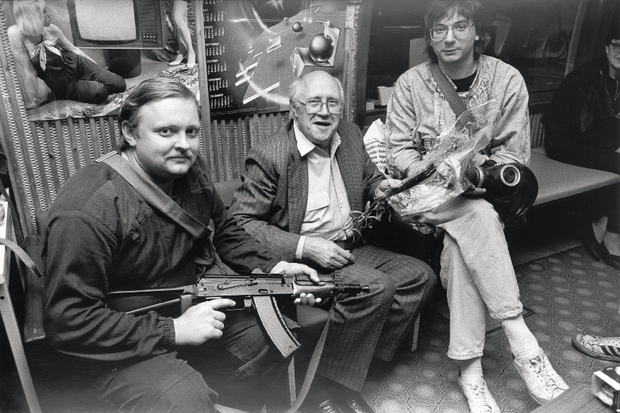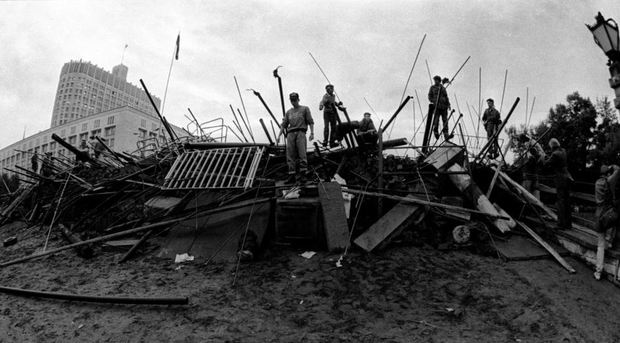Ivan Grachev: ‘When it was known I was from Tatarstan, it caused a burst of enthusiasm’
What happened in the White House during the August putsch in 1991? Who ruled all the process and what happened during this tense period in the capital of Tatarstan? Politician Ivan Grachev, who was seconded to Moscow on the first day of the putsch and became a witness of such significant events for our country, answered questions at Realnoe Vremya's request.
'I was just impressed by these people who were sitting and waiting in this 'alive ring' behind these mythic barricades'
Mr Grachev, could you share your emotions and memories of that period? First of all, how did you know what happened in Moscow?
I knew about it early in the morning from some mass media or somebody called me. As soon as the putsch was announced, I thought: 'Creeps, wankers. If they win, either I will go rotten in Magadan or it will be the end of the Soviet Union'. It was the first thing I felt. As I chaired the democratic party in the Parliament of Tatarstan, I thought, in case of their victory, I would have to face a trip to Magadan to my relatives at best, a worse thing was waiting for me at worst. In case of their defeat, I was sure it would be the end of the Soviet Union. We quickly gathered our own group called Narodovlastie (Power of People) and decided that somebody would deal with the organisation in a square in Kazan, and I would be sent to Moscow as a leader of the group. Decisions were made in Moscow. All people perfectly understood it. By the way, I was sent there by the Supreme Council of Tatarstan and turned out in the building of the Supreme Council of Moscow on 19 or 20 August.

'A burst of enthusiasm was caused when I showed my accreditation where it was written I was from the Supreme Council of Tatarstan like 'people came to support even from Tatarstan'. Photo: kpfu.ru
I had two strongest feelings: the first was at about 4 p.m. when it was announced about the assault. The end that was waiting for us because we were in this White House was clear. I saw tanks outside. The second thing I remember are people who were standing in the rain late in the evening or even at night – it was a 'ring' around the White House. In my opinion, it is much more difficult to stay all night long waiting for death in the rain than to sit inside the building where one could sleep and so on where I was. I was just impressed by these people who were sitting and waiting in this 'alive ring' behind these mythic barricades.
The third important feeling I had was when I came there were organised security desks, and no one was allowed to enter in order to hinder provocateurs from entering. A burst of enthusiasm was caused when I showed my accreditation where it was written I was from the Supreme Council of Tatarstan like 'people came to support even from Tatarstan'.
Who was in the square in Kazan during these days? Were there any arrests?
I think Masgut Khafizov, that is to say, the team of Narodovlastie was in the square, of course. There were arrests in Kazan. I knew about it when I called from Moscow in the evening. But I can't assure because, anyway, I wasn't in Tatarstan at that moment.
How Tatarstan politicians perceived the putsch?
Politicians divided. Our group was decisively against it. Some people considered this pseudo coup as a combination. I will repeat that my team perceived it as a clear threat to the democratic development of the country. We had not hesitations. And some people immediately considered it as an unreal putsch.
'Ruler' of the White House and Rostropovich with a rifle
You have already mentioned you were in the White House at that time. Could you describe what happened there during this period?
From a perspective of life inside the White House, of course, Khasbulatov and no one else [Editor's Note: Ruslan Khasbulatov was the last chairman of the Supreme Council of the Russian Federation] ruled. In my opinion, he ruled effectively. Meetings I assisted were highly effective.

As for the people whom I met there… I met Rostropovich [Editor's Note: Mstislav Rostropovich, a Soviet and Russian cellist, pianist and conductor]. From my point of view, he had rifles or people who surrounded him had rifles. It was such a funny story. There were many episodes that conveyed the atmosphere.
It would be interesting to know what is your attitude to Khasbulatov as a political figure?
If we speak about the organisation of the opposition to the putsch, he had the greatest importance. It is my point of view. I think Khasbulatov was behind the main organisation work. In general, I have a positive attitude to him as a political figure. He is an economist, and not the last one. He showed himself well while organising the work. I suppose he played an important role in this putsch that was not correct in fact. It could not lead to anything good with such leaders.
'The most deceived people' and the final dissolution of the Soviet Union
Mr Grachev, are you able to say now what happened: a real coup, somebody's intrigues or quite a natural process?
It included everything at the same time. A part of people knew many things, understood and considered it as a 'vaccine' against a real putsch that could take place because life conditions worsened in the whole country. For a part of the population, it was a real attempt to conserve the country, to save the management system in the country. In my opinion, anyway, it is difficult to make an unambiguous statement.
He completely buried the Soviet Union. On the one hand, he provided the development of the country without a totalitarian regimen, which is actually needed. Private property, democracy and pluralism are needed. In this context, his result gave a conceptually correct development of the country. But there is a negative part that guaranteed the dissolution of the Soviet Union. I have such a complicated attitude.

Do you celebrate this date somehow?
I stopped doing it when people who had nothing to do with it were awarded medals when 'Chubais stuff' started to occupy the democratic line two or three years later. I neither asked nor took any medals of the defender of this house.
Actually the people who were standing in the rain and waiting for being killed, who were standing and defending democracy were the most deceived people. They were intelligent people who probably suffered like no one else from imitation of democracy.
What is your attitude to the dissolution of the Soviet Union?
Extremely bad. I mean economically and in other respects. I'm completely convinced the majority of people lost – I'm speaking about ordinary citizens in any country, even in the Baltic region. Almost a half of their population left the countries. It was a complete national decline. I think the decision to dissolute the Soviet Union was bad, harmful and unnecessary to the people and the world.